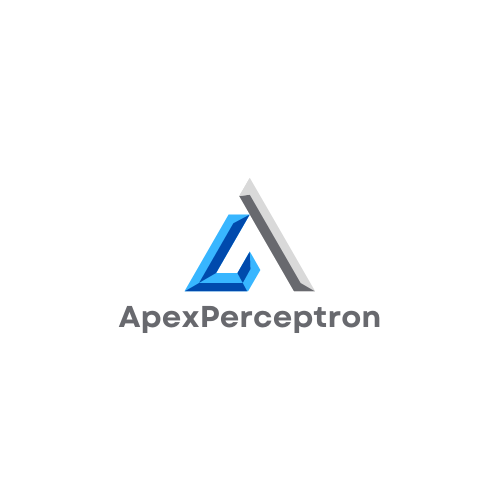
Business/Marketing
Integration of AI into Everyday Business Processes
The future sees ML, DL, and GEN AI seamlessly integrated into daily business operations. From customer service chatbots to automated data analysis, AI will become an integral part of the workplace.
Artificial Intelligence (AI) is no longer a futuristic concept but a dynamic force reshaping the corporate landscape. From Machine Learning (ML) and Deep Learning (DL) to Generative AI, the integration of these technologies in business has become imperative for sustainable growth and success.
Corporate Risk Management and Mitigation
Before delving into the role of AI, it’s essential to comprehend the multifaceted nature of risks encountered by corporations. Strategic Risks, Emerging from poor decision-making, competition, or failure to adapt to market changes, Financial risks, stemming from market fluctuations, operational risks related to internal processes, and reputational risks, influenced by public perception, collectively pose a complex challenge for businesses.
Predictive Analytics in Risk Identification
ML plays a pivotal role in predictive analytics, allowing businesses to anticipate potential risks before they manifest. By analyzing historical data and identifying patterns, ML algorithms contribute to a more accurate and timely identification of potential threats, enabling organizations to take preventive measures.
Deep Learning for Pattern Recognition
Delving deeper into the AI spectrum, DL excels in recognizing intricate patterns within massive datasets. This ability is particularly valuable in risk assessment, where complex relationships and hidden correlations may not be apparent through traditional analytical methods.
Sentiment Analysis for Reputation Management
Reputation is a fragile asset for any business. AI, through sentiment analysis, scans online platforms to gauge public opinion. This tool empowers businesses to swiftly identify and address potential reputational risks, ensuring a proactive stance in maintaining a positive brand image.
Fraud Detection and Prevention
The marriage of AI and risk management is most evident in the realm of fraud detection. ML algorithms excel in identifying unusual patterns and anomalies, enabling businesses to detect and prevent fraudulent activities, thereby safeguarding their financial integrity.
Automating Compliance Processes
Ensuring compliance with regulations is a critical aspect of risk management. AI streamlines this process by automating compliance checks. This not only reduces the margin for error but also ensures that businesses adhere to ever-evolving regulatory standards.
Decision Support Systems in Risk Mitigation
AI-driven decision support systems provide a comprehensive view of potential risks, assisting organizations in making informed choices. By amalgamating data from various sources, these systems empower decision-makers with the insights needed to formulate effective risk mitigation strategies.
Simulating Scenarios with Generative AI
Generative AI takes risk management a step further by simulating potential scenarios. By creating synthetic data and mimicking real-world situations, businesses can proactively plan for a myriad of risks, enhancing their preparedness for unforeseen challenges.
AI in Business Growth and Strategy
Understanding AI in Business Strategy
In the ever-evolving business landscape, it’s crucial to comprehend the significance of AI technologies such as ML, DL, and Generative AI. These powerful tools are not just buzzwords but game-changers that can redefine how corporations devise and execute their strategies.
Enhancing Decision-Making with Machine Learning
In the realm of strategic decision-making, ML emerges as a formidable ally. By analyzing market trends and historical data, ML algorithms provide insights that empower executives to make informed and precise decisions. The predictive analytics offered by ML enhances strategic planning, minimizing uncertainties.
Optimizing Operations through Deep Learning
DL takes the spotlight when it comes to optimizing operational processes. Through process automation and sophisticated pattern recognition, DL not only streamlines operations but also contributes to cost reduction. The infusion of DL technologies injects efficiency and agility into the corporate machinery.
Strategic Planning with Generative AI
The realm of strategic planning undergoes a revolutionary shift with the incorporation of Generative AI. Unlike traditional approaches, Generative AI fosters creative problem-solving, enabling businesses to innovate their strategies dynamically. This customization capability empowers corporations to stand out in a competitive market.
Adapting to Market Changes
In a dynamic market environment, the ability to adapt swiftly is paramount. AI, with its capacity to process vast amounts of data, equips businesses to monitor market changes in real-time. This enables prompt adjustments to strategies, ensuring companies stay ahead of the curve.
Competitive Edge with AI
Achieving a competitive edge necessitates not only understanding the market but also comprehending competitors’ moves. AI aids in competitive analysis by sifting through massive datasets to identify trends and opportunities. Businesses armed with AI insights are better positioned to outmaneuver rivals.
Customer Engagement and Personalization
Understanding customer behavior is a key element of effective business strategy. ML and Generative AI enable businesses to analyze customer data comprehensively. This, in turn, facilitates the tailoring of products and services, creating personalized experiences that resonate with the target audience.
AI in Marketing Strategies
DL is a game-changer in marketing, enabling targeted advertising and personalized content recommendations. It analyzes vast datasets to understand customer preferences, ensuring that promotional efforts are more effective.
Customer Segmentation
ML/DL techniques enable precise customer segmentation, allowing companies to tailor marketing strategies, personalized recommendations, and targeted campaigns, leading to improved customer satisfaction and increased sales.
Marketing Optimization
GEN AI assists in creating innovative content, optimizing marketing strategies, and generating new opportunities for growth and customer engagement.
Need Any Help?

Apex Perceptron`s role in your Business
AI Solutions for Risk Management and Mitigation
Risk Management
Apex Perceptron bridges the gap between artificial intelligence and risk management, offering a comprehensive solution that goes beyond traditional approaches. By leveraging machine learning for risk prediction and adaptive risk models, businesses can stay ahead of potential threats and adapt their risk mitigation strategies in real-time. Apex Perceptron identifies potential threats through its advanced risk assessment capabilities. By adopting Machine learning algorithms enable the system to predict risks accurately, while adaptive risk models ensure that strategies evolve dynamically with changing circumstances. With the integration of Generative AI, Apex Perceptron excels in future-proofing businesses against emerging risks. By simulating various scenarios and predicting potential threats, the system enables organizations to implement proactive measures, ensuring resilience in the face of uncertainties.
AI Solutions for Business Strategy / Marketing
Apex Perceptron’s Contribution
The true value of Apex Perceptron lies in its contribution to business growth. Through market trend analysis, the system identifies growth opportunities and provides competitive intelligence. Companies armed with this information can make strategic decisions that propel them ahead in the market, fostering sustainable growth.
Once the visual design is complete, the app will typically go through a series of user testing and iteration cycles to ensure that it meets the needs of the target audience. The design team will gather feedback from users, iterate on the design, and refine the app until it is ready for launch.
Overall, mobile application design is a critical component of creating a successful mobile app. A well-designed app can improve user engagement, increase retention rates, and ultimately drive business success.
Need Any Help?








